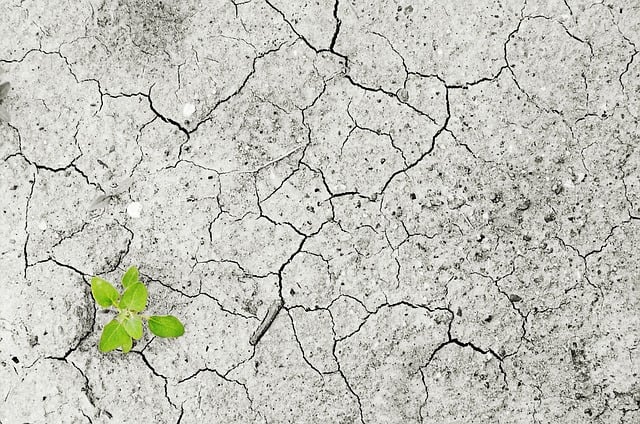For the longest time, parks have been a crucial part of any large city. People would come to relax and get a small taste of nature in a huge concrete jungle. If you take a brisk walk through any park in the world, you can see people reading, laughing with friends, or just feeding pigeons. There is no question that parks are crucial to the mental wellbeing of the modern man.
However, it seems as though parks have taken another role in the 21st century. With climate change making more and more headlines in 2019, city planners are trying to battle this problem by creating more parks.
The Impact of Parks in Large Cities
It might seem that parks are too small of a project to make an impact, but that’s not necessarily true. While creating more parks might not reverse climate change, it can definitely help with the effects. For example, parks can help with intense heat, air quality, and even flooding.
Furthermore, building more parks raises awareness of the dangers of climate change. Not only does this motivate people to take further measures in battling climate change, but it also helps those who are affected by the changing weather.
How London Handles The Issue?
London is one of the largest cities in the world. As a result, the adverse effect of climate change should be noticeable in this metropolitan. However, London remains one of the greenest cities on Earth. How?
The fact is that 40% of London is made of public green space. On a similar note, there are over 3000 parks in London, covering over 35,000 acres. While some of them might not be accessible to everyone, they are still a sight to see. You can hardly walk a block without seeing a park in a huge city.
London is a prime example of a city done right in regards to public parks. The most important factor that contributes to the green nature of the city is the English culture of maintaining parks and gardens.
It is also important to note the types of plants and trees that live in these parks, as confirmed by gardening experts from HandyGardeners. For example, English oak, common aspen, English yew, holly, willows, etc. are all crucial for maintaining a high quality of air, especially in large cities.
London is home to over eight million trees, and every single one of them contributes to alleviating the effects of climate change in the city.
How Parks Provide Solutions?
Apart from London, more and more cities try to create more “climate-smart” park systems.
As previously mentioned, parks are of utmost importance for helping with the extreme heat and other adverse effects. Here are a few examples of how they provide solutions to the ever-growing problem of climate change:
- Cool the City
Trees and parks have proven to be very effective in combating the heat. Studies have shown that the temperature in parks can be up to 9 degrees lower than in the parts of the city with no green space. In fact, this cooling benefit extends up to a kilometer away from the park itself. This results in a cooler neighborhood, and fewer people are affected by heat stress.
- Reduce Flooding & Improve the Quality of Water
Parks that incorporate green infrastructure can reduce flooding and improve water quality. This landscaping feature can filter as much as 95% of pollutants. Research also suggests that some features can reduce storm-water runoff. As a result, the possibility of flooding is reduced.
- Clean the Air
Experts estimate that urban forests remove around 711,000 tonnes of air pollution every year. This can be compared to removing over 20 million cars from the streets for 12 months. Coincidentally, trees also clean the air from pollutants that automobiles produce.
The Effects of Climate Change on Our Everyday Lives
It would be foolish to discuss the impact of parks on the effects of climate change without mentioning what the effects actually are.
- Food
You might have noticed that food prices are rising. Well, climate change makes it harder to maintain ideal conditions for crops to thrive. As a result of extreme weather, some crops are being flooded, while others experience drought. Studies show that there is a global decrease in wheat and corn production as a direct result of climate change.
- Water
Freshwater is becoming rarer. Increased evaporation and severe droughts are impacting the water levels in lakes and rivers. In fact, nearly 20% of the Earth’s freshwater is in the Great Lakes. Experts believe that the water levels of the Great Lakes will decline in the following years as a result of higher global temperatures.
- Fires
As droughts are becoming increasingly common, more wildfires are breaking out.
- Buildings
It might be surprising to find out that even buildings are affected by extreme weather. Foundations of buildings are damaged as the soil dries out.
- Health
Maybe the most important effect to note – our health is declining because of climate change. Medical professionals warn that more and more people will be affected by skin cancer, as well as that there is an increase in heat-related deaths.
- Floods
Britain is at a risk for flooding as sea-level rises.
Is Creating More Green Space Enough?
While building more parks is certainly a step in the right direction, it’s not the be-all-end-all. There are simple steps you can take to fight climate change. For example, you could bike or walk to work, or you could switch your appliances to greener options. Small steps can make a big impact.
However, it is important that you can’t solve the problem on your own. Raising awareness in the community about climate change is crucial in helping fight it. If the world comes together to combat this issue, we might be able to make a difference after all.






